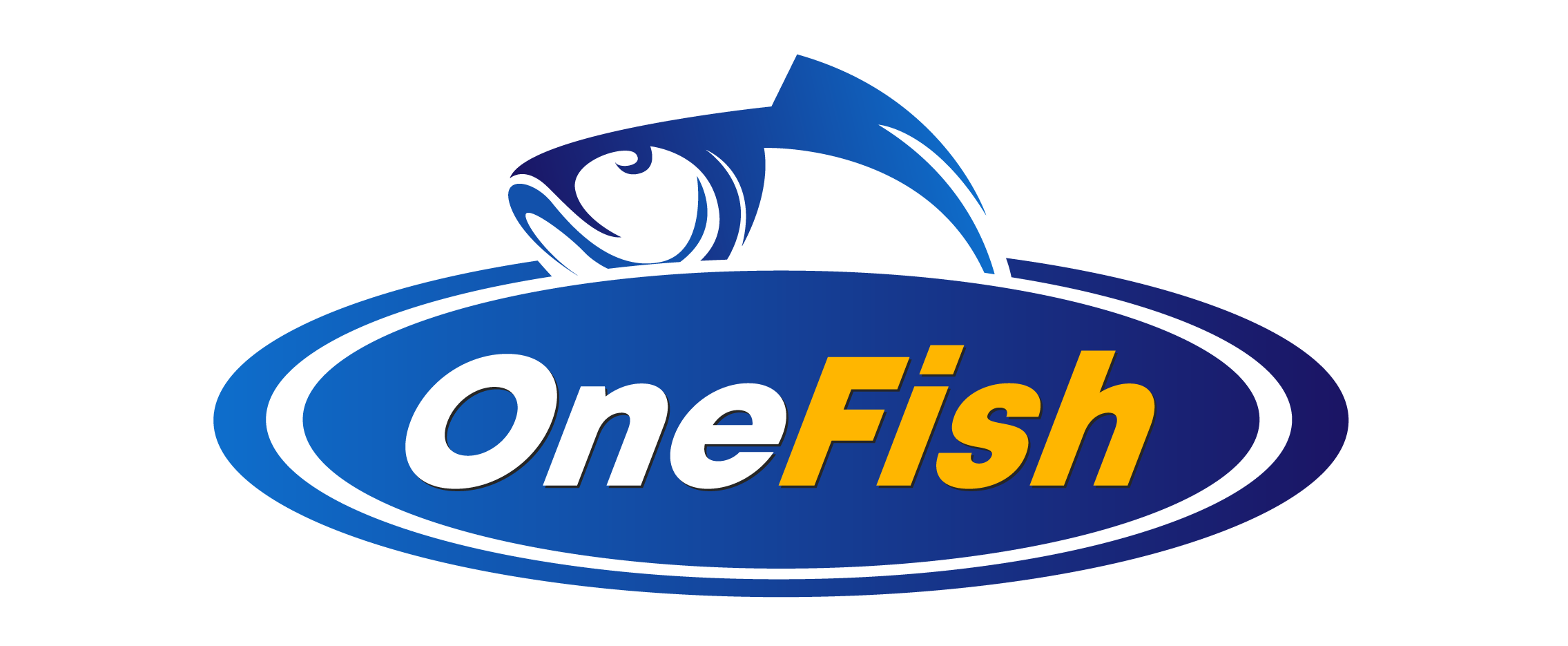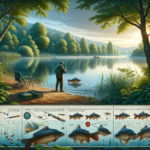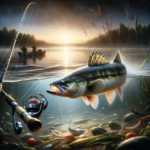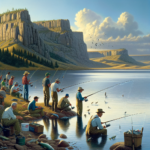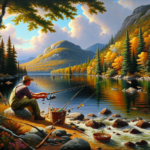Crappie Fishing in Missouri’s Lakes and Reservoirs
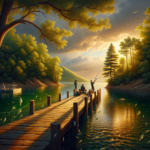
Introduction
Did you know that Missouri is home to some of the best crappie fishing in the United States? With its numerous lakes and reservoirs, the state offers a paradise for anglers looking to catch this popular freshwater fish. In this article, we will explore the ins and outs of crappie fishing in Missouri, covering everything from the best fishing techniques and gear to the top fishing spots and seasonal considerations. Whether you’re a seasoned angler or a beginner, this guide will provide you with all the information you need to make your next fishing trip a success.
Crappie fishing is not just a pastime; it’s a way of life for many Missourians. Understanding the best techniques, knowing where to fish, and being aware of seasonal variations can significantly enhance your fishing experience. This article aims to equip you with the knowledge and tools you need to catch more crappie and enjoy your time on Missouri’s beautiful lakes and reservoirs.
Background/Context
Historical or Cultural Significance
Crappie fishing has a long history in Missouri, dating back to the early settlers who relied on the state’s abundant freshwater resources for sustenance. Over the years, crappie fishing has evolved from a means of survival to a popular recreational activity. Today, it is deeply ingrained in the local culture, with numerous fishing clubs, tournaments, and community events centered around this beloved fish.
Geographical Overview
Missouri is blessed with a diverse range of water bodies, including large reservoirs, natural lakes, and rivers. The state’s climate, characterized by hot summers and cold winters, creates ideal conditions for crappie fishing year-round. The local ecosystem supports a variety of fish species, but crappie, both black and white, are among the most sought-after due to their abundance and the challenge they present to anglers.
Key Points/Details
Fishing Techniques
Technique Overview
Several techniques are effective for crappie fishing, including jigging, trolling, and using live bait. Jigging involves using a small, weighted lure (jig) that mimics the movement of a baitfish. Trolling involves dragging lures or bait behind a moving boat to cover a larger area. Live bait, such as minnows, is also highly effective for attracting crappie.
When and Where to Use
Jigging is particularly effective in the spring and fall when crappie are more active and can be found in shallower waters. Trolling is best suited for the summer months when crappie move to deeper, cooler waters. Live bait can be used year-round but is especially effective during the spawning season in the spring.
Recommended Gear
- Rods: Light to medium-light rods with fast action tips.
- Reels: Spinning reels with a smooth drag system.
- Lines: 4-8 lb test monofilament or fluorocarbon lines.
- Bait/Lures: Jigs, spinners, and live minnows.
Species Information
Species Overview
Crappie are divided into two main species: black crappie and white crappie. Black crappie prefer clearer waters with abundant vegetation, while white crappie are more tolerant of murky waters. Both species are known for their schooling behavior, making them easier to locate once you find a group.
Best Practices
To successfully catch crappie, focus on areas with structure such as submerged trees, brush piles, and docks. Use a fish finder to locate schools of crappie and adjust your techniques based on the season. During the spring, target shallow waters near spawning grounds. In the summer, fish deeper waters, and in the fall, look for crappie near drop-offs and ledges.
Location Information
Top Fishing Spots
- Lake of the Ozarks: Known for its large crappie population and numerous fishing docks.
- Truman Lake: Offers excellent crappie fishing year-round with plenty of submerged structures.
- Table Rock Lake: Clear waters and abundant vegetation make it ideal for black crappie.
- Mark Twain Lake: A popular spot for both black and white crappie, especially in the spring.
Regulations and Licenses
Missouri requires anglers to have a valid fishing license, which can be purchased online or at local retailers. There are specific regulations regarding catch limits and size restrictions for crappie, so be sure to check the Missouri Department of Conservation’s website for the most up-to-date information.
Seasonal Considerations
Seasonal Variations
Crappie fishing conditions change throughout the year. In the spring, crappie move to shallow waters to spawn, making them easier to catch. Summer heat drives them to deeper, cooler waters, while fall sees them returning to shallower areas to feed before winter. Winter fishing can be challenging but rewarding, as crappie tend to school tightly in deeper waters.
Best Times to Fish
The best times to fish for crappie are early morning and late afternoon when they are most active. Spring and fall are generally the most productive seasons, but with the right techniques, you can catch crappie year-round.
Events and Tournaments
Event Overview
Missouri hosts several crappie fishing tournaments throughout the year, including the Crappie Masters Tournament Trail and local events organized by fishing clubs. These tournaments offer a great opportunity to test your skills and compete with other anglers.
Preparation Tips
To prepare for a tournament, practice your techniques and familiarize yourself with the fishing area. Make sure your gear is in top condition and pack extra supplies. Study the tournament rules and regulations to ensure compliance.
Tips and Best Practices
General Tips
- Use a fish finder to locate schools of crappie.
- Experiment with different jig colors and sizes to see what works best.
- Keep your bait lively and fresh to attract more fish.
Avoid Common Mistakes
- Don’t fish too shallow or too deep; adjust based on the season.
- Avoid using heavy tackle that can spook crappie.
- Don’t ignore the importance of structure; crappie love hiding spots.
Advanced Techniques
- Try spider rigging, a technique that uses multiple rods to cover more area.
- Use slip bobbers to present your bait at the perfect depth.
- Experiment with vertical jigging in deeper waters during the summer.
Gear and Equipment Recommendations
Essential Gear
- Light to medium-light rods
- Spinning reels
- 4-8 lb test lines
- Jigs, spinners, and live bait
Optional Gear/Upgrades
- Fish finder
- Spider rigging setup
- Slip bobbers
- High-quality polarized sunglasses
Where to Buy or Rent
You can purchase or rent fishing gear at local shops near popular fishing spots or online retailers like Bass Pro Shops and Cabela’s.
Safety and Conservation
Safety Tips
- Always wear a life jacket when on a boat.
- Check the weather forecast before heading out.
- Be aware of local wildlife and avoid disturbing their habitats.
Conservation Practices
- Practice catch and release to help maintain fish populations.
- Follow local fishing regulations and catch limits.
- Dispose of trash and fishing line properly to protect the environment.
Planning Your Trip
Accommodations
There are numerous lodging options near Missouri’s top fishing spots, including hotels, cabins, and campgrounds. Lake of the Ozarks and Truman Lake have a variety of accommodations to suit different budgets and preferences.
Travel Tips
Most of Missouri’s top fishing spots are easily accessible by car. If you’re flying in, consider renting a car to reach more remote locations. Check local maps and GPS for the best routes and access points.
Additional Activities
Missouri offers plenty of activities for non-fishing time, including hiking, boating, and visiting local attractions like the Ozark National Scenic Riverways and Branson’s entertainment district.
Frequently Asked Questions (FAQs)
What is the best time of year to fish for crappie in Missouri?
The best times are generally in the spring and fall when crappie are more active and easier to locate.
Do I need a fishing license to fish for crappie in Missouri?
Yes, a valid fishing license is required. You can purchase one online or at local retailers.
What are the best baits for crappie fishing?
Jigs, spinners, and live minnows are highly effective for crappie fishing.
Are there any fishing tournaments for crappie in Missouri?
Yes, Missouri hosts several crappie fishing tournaments throughout the year, including the Crappie Masters Tournament Trail.
Conclusion
Crappie fishing in Missouri’s lakes and reservoirs offers an exciting and rewarding experience for anglers of all skill levels. By understanding the best techniques, knowing where to fish, and being aware of seasonal variations, you can significantly enhance your chances of success. Whether you’re looking to catch your first crappie or compete in a tournament, this guide provides all the information you need to make the most of your fishing adventure. So grab your gear, head to one of Missouri’s top fishing spots, and enjoy the thrill of crappie fishing!
